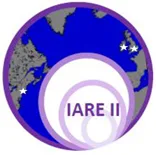International Access Rights & Empowerment II
The International Access, Rights and Empowerment II (IARE II) study is an observational study to identify and understand the service use, preferences and palliative care needs of a cohort of older people living with frailty and advanced disease in two countries. We will follow how the needs and preferences evolve over time.
This study builds on IARE I, which investigated people who had already accessed palliative care. IARE II recruits people who have not yet accessed specialist palliative care. This allows us to directly investigate potentially unmet needs, and by making comparisons between IARE I and II we can better understand the inequities of palliative care access for different groups.
To provide a multi-perspective understanding of the potentially complex needs of this group, IARE II relies on a mixed-methods longitudinal design including prospective data collection (patient and carer surveys, a discrete choice experiment, qualitative interviews) and retrospective data collection (mortality follow-back survey).
Aims
The aim of IARE II study is to improve equity of access to palliative care by understanding the needs, healthcare use, and care preferences, of older adults in two countries, who have recently attended hospital but have not yet received specialist palliative care, and how these change over time.
Methods
There were two main parts to this observational study:
Part 1: A cohort study of frail older people with advanced conditions but who were not receiving specialist palliative care. This involved:
- Questionnaire study: Participants completed questionnaires relating to their symptoms and concerns, level of function, care received and preferences for care. This included a discrete choice experiment. The study followed participants up over 6 months.
- Qualitative study: Participants from the cohort study were invited to take part in up to 3 in-depth interviews to explore in more detail their experiences of living with frailty and advanced disease, their view on the care they have received, their care preferences and their understanding of palliative care.
Part 2: A mortality follow-back survey
We invited bereaved carers of people aged over 65 who had died in hospital 4-10 months previously to complete a postal survey. The survey investigated the older person’s experiences and the level of grief experienced by the carer.
Trials Design
Observational study






